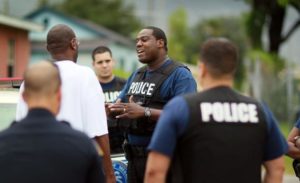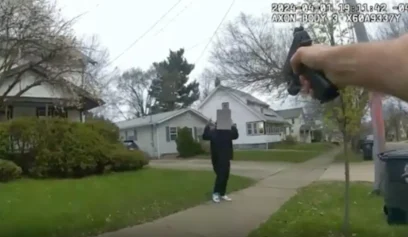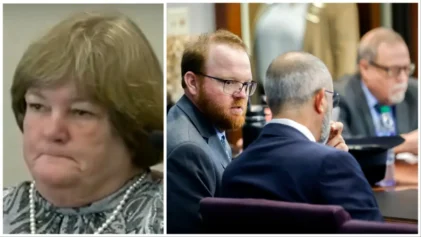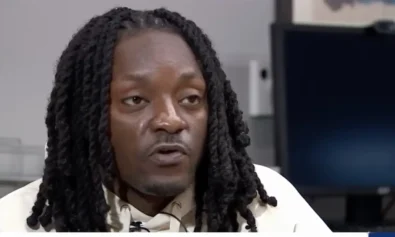
Police officers speak with a person as they patrol the street on August 10, 2010 in Miami, Florida. Image courtesy of Joe Raedle/Getty Images.
Never talk to the cops, period.
That’s the advice Regent Law school professor James Duane gave his students during a lecture back in 2008. His belief in the risks associated with divulging information to the police — even if you haven’t committed a crime — has since manifested into a viral video of his taped lecture posted on YouTube, according to Vice.
Duane’s new book, titled “You Have the Right to Remain Innocent,” now seeks to expand on his ideas and delve deeper into the many ways “small talk” with police can lead to wrongful convictions and a stint behind bars. In a recent interview with Vice, the law professor spoke on how small mistakes in explaining your whereabouts at the time of a crime, sly tricks by the police to force a confession and unreliable witness testimony are key elements in cops’ efforts to snag a conviction.
The only way to save oneself, according to Duane, is to request a lawyer.
The law professor’s book touched on another police pitfall — exercised use of the 5th Amendment, which protects a defendant from incriminating themselves. According to Vice, the 2013 Supreme Court case Salinas v. Texas turned the right to “plead the Fifth” on its head. Justices in the case ruled that if a defendant exercised his/her right to remain silent, it could be used against them as some sort of twisted admission of guilt.
“In the Salinas case, a young man was interrogated by the police, and when they asked him a bunch of questions that didn’t seem to be very threatening, he took the bait and answered them all,” Duane told Vice. “Then all of the sudden, they [asked a question that made it] obvious they wanted information that might expose him to criminal prosecution.”
“He didn’t say a word,” the professor continued. “And there’s no doubt that he was exercising his Fifth Amendment privilege.”
Duane said because the young man didn’t formally announce his decision to “plead the fifth,” the Republican Supreme Court appointees saw his sudden silence as a sign of guilt. This is why he advises civilians to avoid taking the Fifth at all costs.
“The game has changed now that your choice to use the Fifth Amendment privilege can be used against you at trial depending exactly how and where you do it,” Duane said. “As I explain in the book, now the problem is, if you’re kind of clumsy about the way you assert the Fifth Amendment, you’re running a lot of different risks.”
In an effort to reduce the number of innocent people who are wrongfully convicted and sent to jail, the Regent law professor recommended that police officers be required to use high-quality audio equipment during their interactions with the accused.
“In this day and age, where video and audio surveillance is practically ubiquitous wherever you go, it ought to be a national scandal that police officers and government agents are not generally required to record the entire interview,” he said.
He also noted that police officers’ tendencies to share information they’ve learned from investigators with witnesses can also lead to innocent people going to prison. Criminal investigations put into the hands of authorities tasked with building the prosecution’s case can result in wrongful convictions as well.
“Any police officer will tell you, ‘We’re here to get to the truth,’ ” he said. “But the reality is that over time police officers inevitably come to see themselves as part of the prosecutor’s team. They work with the prosecutors, they testify for the prosecutors, they meet with the prosecutors.”
“There are other Western democracies that have legal systems mostly like ours but place significant parts of the criminal investigation in the hands and under the direct supervision of judges and magistrates who really are neutral,” Duane added.
Since his lectures and speeches went viral, Duane told Vice he’s received largely positive reactions from members of the law enforcement community. He admitted that while he encourages people to not talk to police, that action in turn makes it harder for authorities to investigate crimes. But Duane said the trade-off is well worth it because “one innocent man unjustly convicted is much worse than one guilty man going free.”
Duane’s book hit shelves on Tuesday, Vice reports.
https://www.youtube.com/watch?v=i8z7NC5sgik


